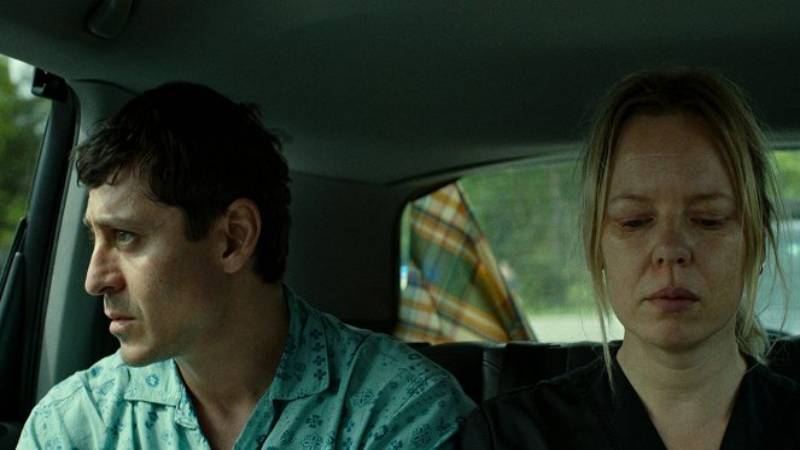




Swedish-Lebanese actor Fares Fares’s debut may seem like a clichéd hostage drama, but this is just a guise. This is an ambitious production focusing on broken family relationships and their devastating effects on the individuals. Fares also co-signs the screenplay, along with first-timer Peter Smirnakos, and holds one of the main roles in this emotional drama that doesn’t always achieve its intended objectives.
What starts out as a hostage drama soon morphs into a confessional trip from hell. The three protagonists Artan (Alexej Manvelov), his estranged wife Louise (Alma Pöysti) and officer Lucas (Fares Fares) express themselves freely in side the vehicle. It is there that they speak the truth, voice their acrimony, and distill their poison, while admitting some of their most fundamental mistakes that marked their past and shaped their present status.
The story commences with Artan, an underprivileged immigrant who used to have troubles with the law during his stay in Sweden, visiting the medical centre where Louise works and demanding to see her at once. When the woman in the reception rejects his request, he pulls out his gun and threatens everybody around him, frantically repeating that his wife kidnapped their daughter and took her away from her father.

Soon, officer Lucas enters the scene, and he struggles to be the voice of reason that must prevail. He fails to defuse a tense situation that could easily slip into chaos, and the death of innocent people. Artan holds Louise at gunpoint and explicitly states his demand to see his little daughter, who is currently living in her maternal grandparent’s house. After overcoming some practical problems, the trio of protagonists gets into the car and the journey of self-discovery is on. Sadly, the dialogue is rather weak. The characters are neither entirely plausible nor multidimensional. The characterisation, especially in some parts of the movie, feels rather shallow. Each character manifests their inner essence by rotating around a single axis: Artan is desperate; Louise is mentally unstable and occasionally deranged; Lucas is depressed.
The performances are more effective than the script. Manvelov, a familiar foreigner villain in Swedish television and cinema, proves that he is a multi-skilled actor: the haunted look on his face doesn’t fade away even after the film is finished. His character is the first one to impose his agency over others, says: “I’m in charge here!”. However, his wavering voice reveals his true state of mind. He is terrified that he may set have set in motion something irreversible and with dire consequences both for himself and his loved ones. The actor is never exaggerated, instead his character comes across as an insecure man trying to convince himself of what he says (before he can convince others). Alma Pöysti gives Louise a palpable sense of depth, with problems rooted in a dysfunctional childhood. Fares has the least demanding role, with his story interspersed and mostly auxiliary to the other two. He too has some emotional baggage and damage.
A Day and a Half can be viewed now on Netflix.





















